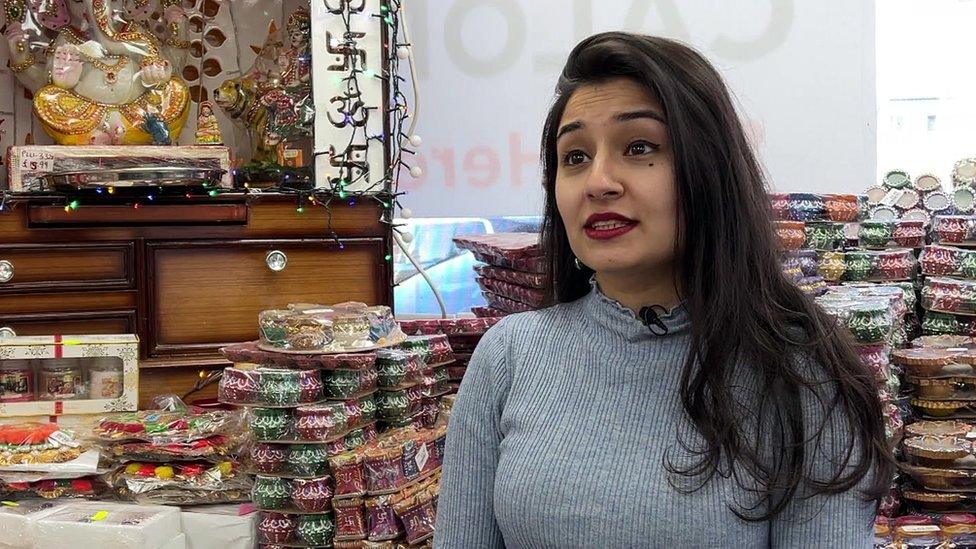'Diwali is a lot more than fireworks and sweets'
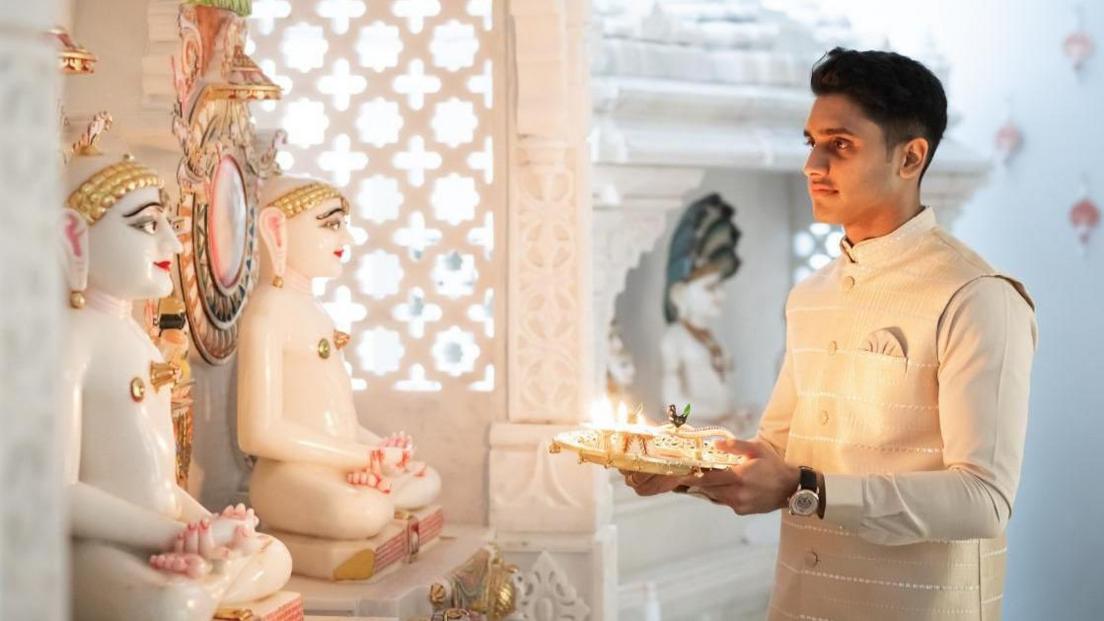
The date of Diwali varies each year according to the lunar calendar
- Published
There's a lot more to Diwali than just launching fireworks, eating Indian sweets and lighting divas.
Four religions celebrate the event differently and mark the occasion for separate reasons.
Hindus and Jains celebrate Diwali on the 31 October, Sikhs on the 1 November and Buddhists on 15 November.
Members of each faith from around London tell the BBC what Diwali means to them.
'Favourite time of the year'
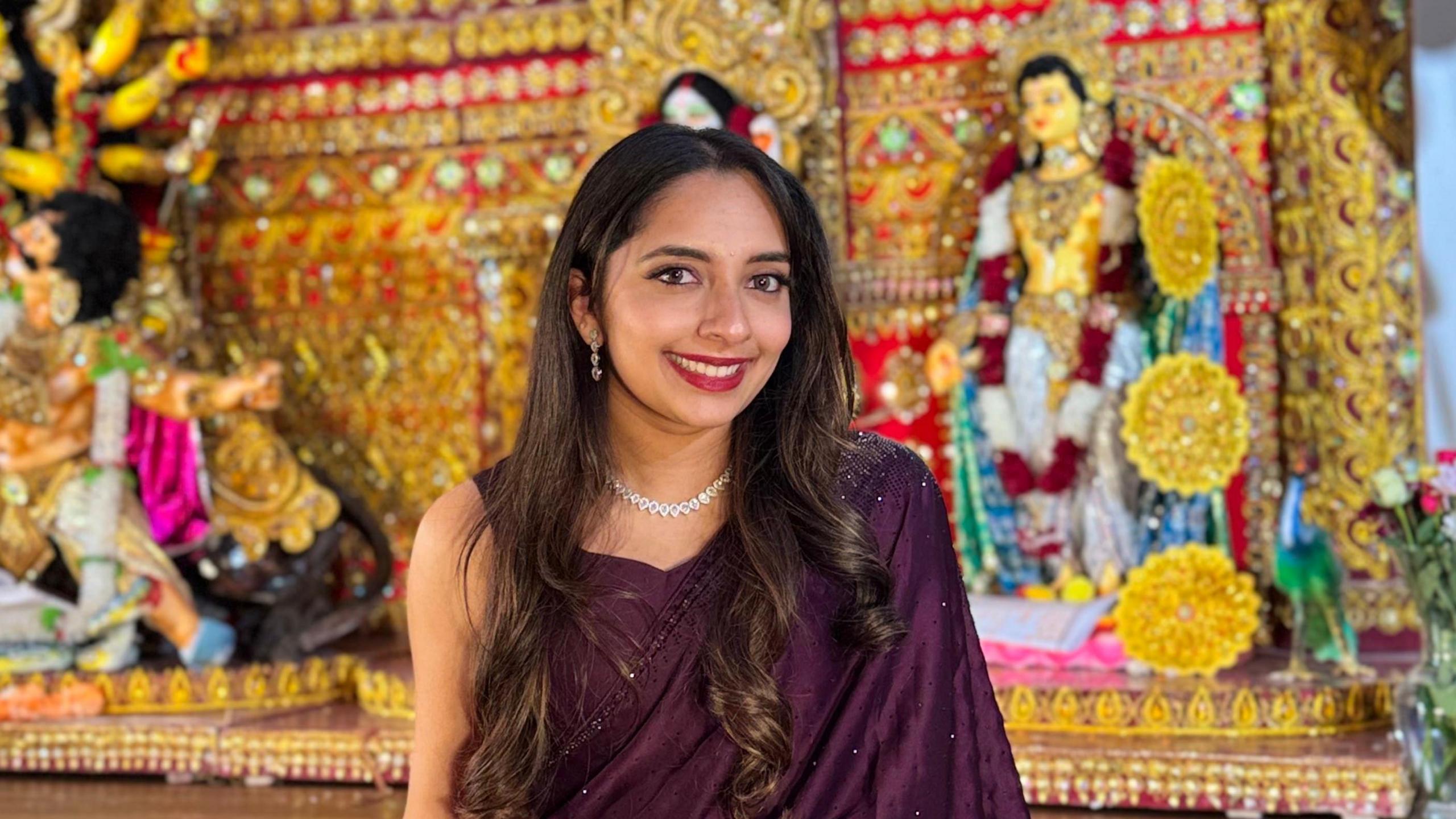
Hindu's celebrate Diwali across five days
"It's honestly one of my favourite times of the year," Vedika Apte, 23, from west London says.
The medical student has spent the past few days making ladoos - round Indian sweets - with her mum.
"We're still going to be eating them in two weeks," she says, but that is just the start of the festivities.
Hindu communities across India celebrate Diwali differently and Vedika explains that she follows the Marathi way.
As well as meeting friends and family, dancing and lighting candles, Vedika finds this time of year a "reminder to be grateful for everything that's around you and to God as well".
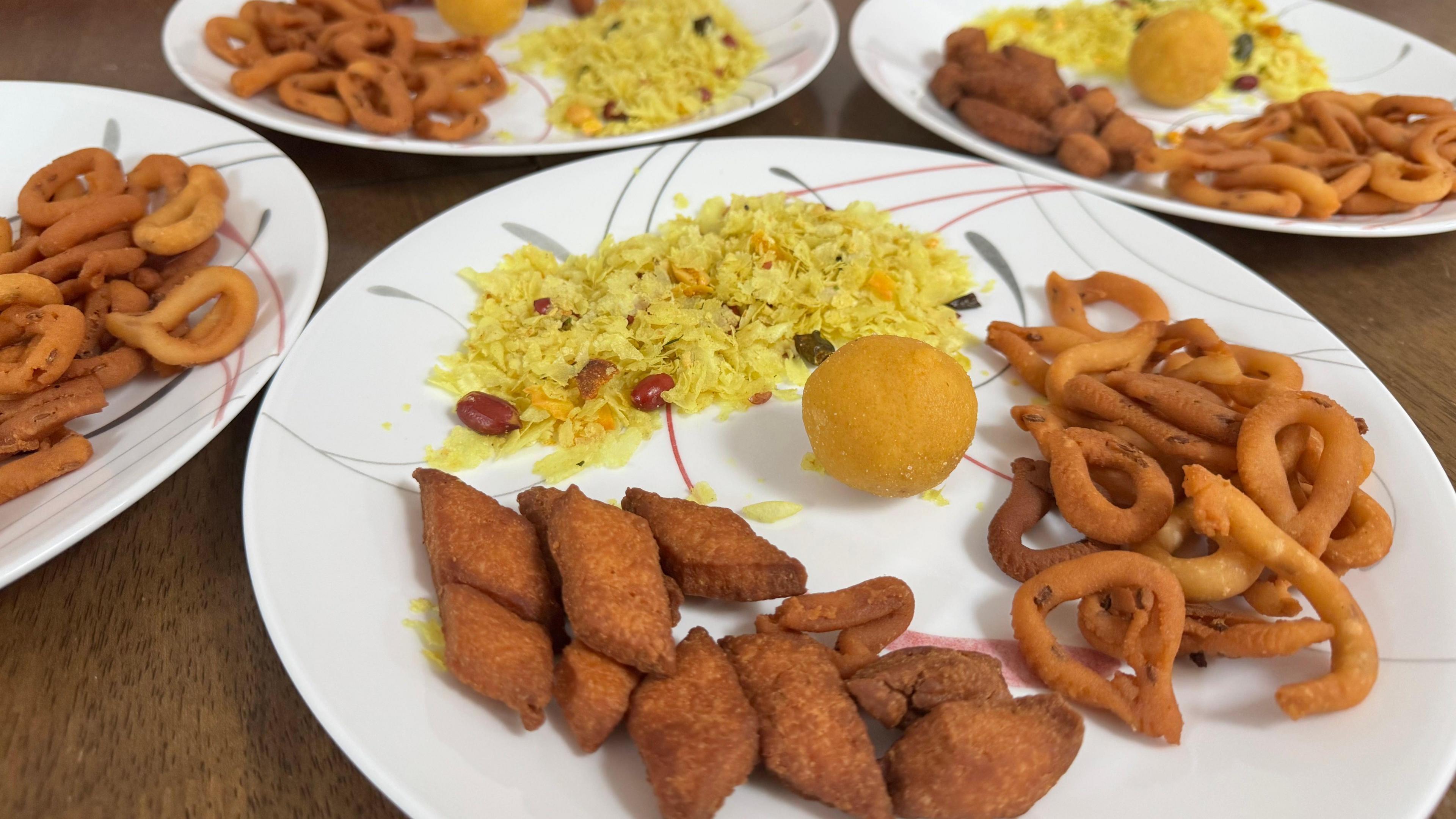
A laddoo is a round Indian sweet made with flour, sugar and butter
"It's not all just fireworks," she says as she explains that on the first of the five-day festival - Dhanteras - people buy gold and metals which is believed to bring wealth and luck into homes.
On the second day - Narka Chaturdashi - Vedika's family spend the morning washing with oils and sandalwood powder, which according to tradition "prepares the body for the winter months".
Her family also clean and organise their home to welcome the goddess of wealth, Lakshmi, the next day.
On the third day Hindus light divas and fireworks but also pray "for blessings, wealth, prosperity for the family, the greater world, and the greater good".
The fourth day is known as the "husband and wife day" where the "wife prays for the husband's long life and gets a present in return" and on the final day "sisters pray for their brothers and in return the brother gives a gift and promises to look after" their sibling.
'A time of reflection and introspection'
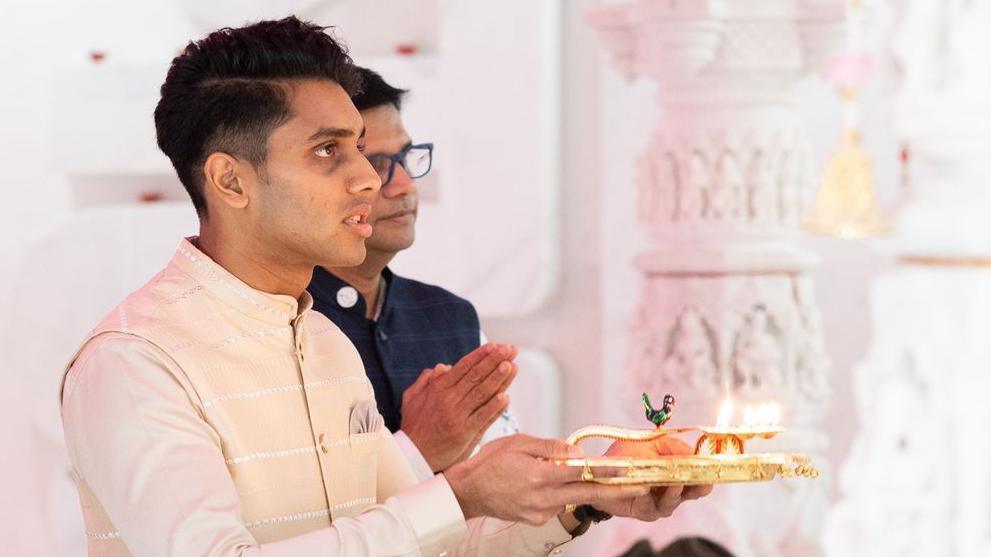
The main aim in life for Jains is to attain "liberation"
Dev, 19, who is a Jain from north London, says Diwali is all about becoming more spiritual and "in tune with yourself".
For Jains, the two-day event is about the moment Jainism founder Lord Mahavira reached a state of being known as Moksha, or eternal bliss.
"Diwali is not celebrated as eating, drinking, partying. It's more focusing on yourself, your own soul, your own actions. It's a time of reflection and introspection."
During this time, Dev also fasts "to cleanse the body and get rid of toxins in preparation for the prayers and rituals". He says this is done to help "attain liberation" and break the cycle of reincarnation.
"We do not use firecrackers because they can hurt the jeev [soul] in the atmosphere" but divas are lit instead.
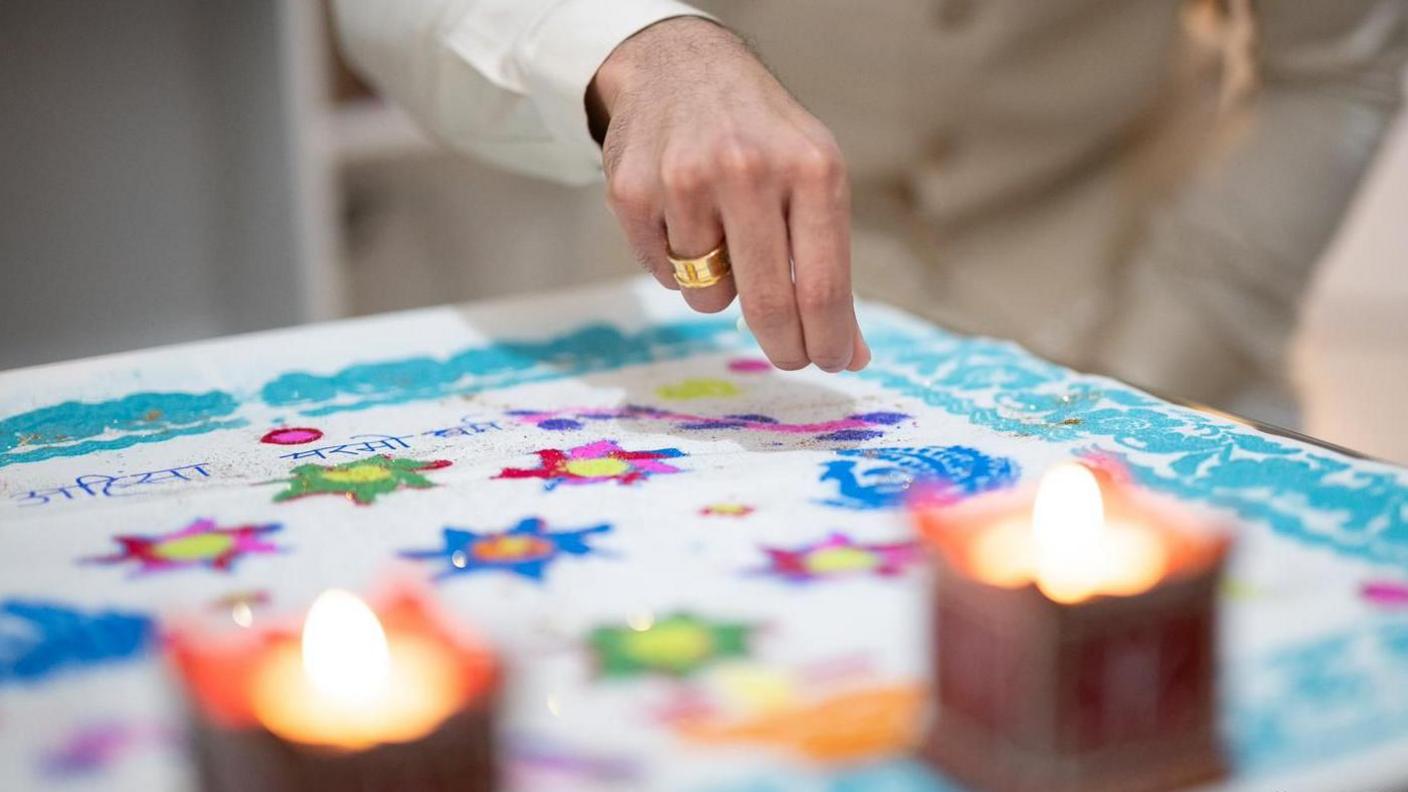
Rangooli is a form of patterns made from colourful powder
'Good over evil'
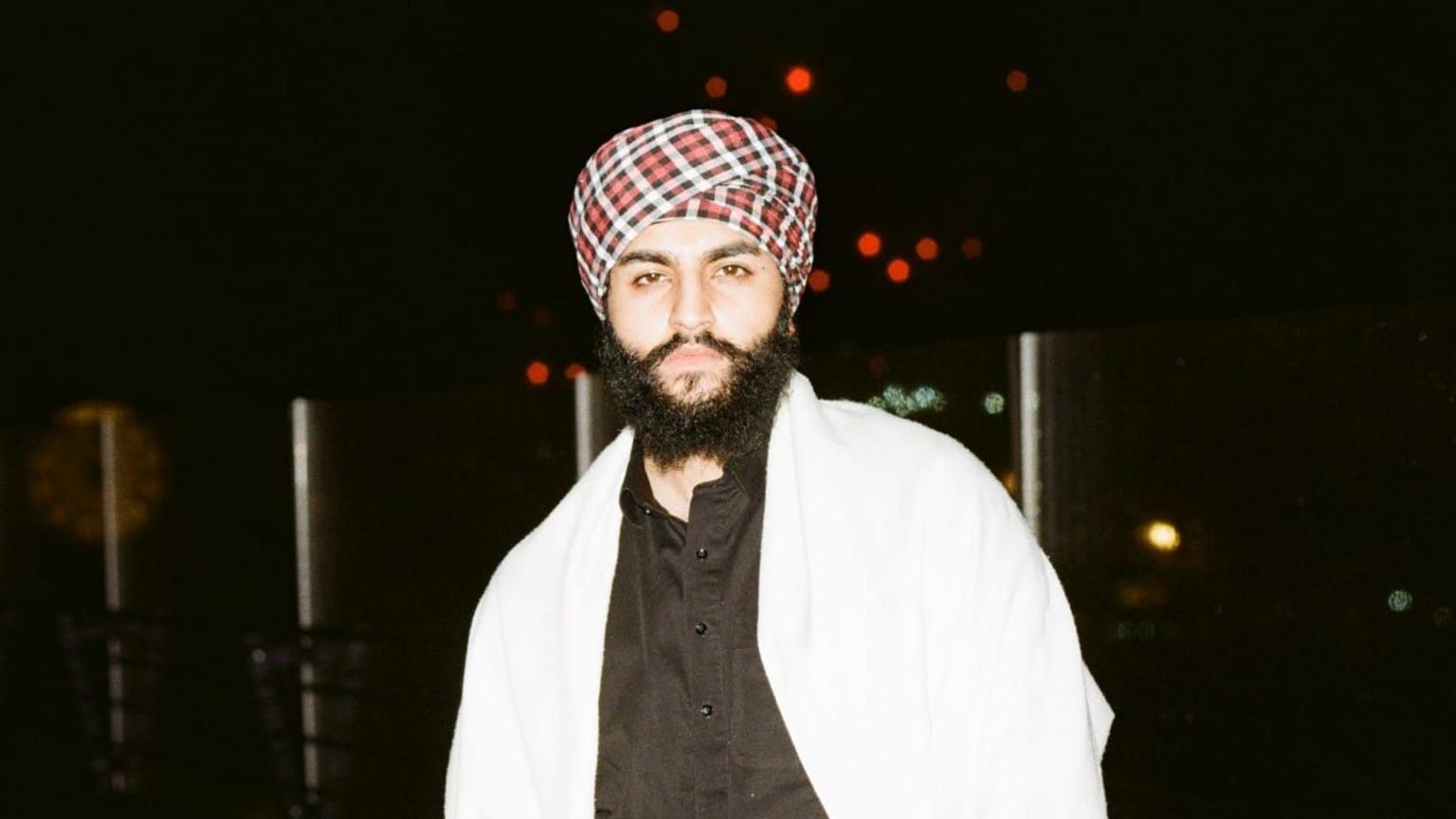
Sikhs often celebrate by praying at the gurudwara
"I used to go to my bibi's [grandmother's] house and help make fresh samosas, spring rolls and gulab jamuns," says Beant Dhillion, a trainee solicitor from east London.
He says now he focuses on making Diwali a time to "properly reflect on the teachings and the message behind why we celebrate every year".
The Sikh festival known as Bandi Chhor Divas marks the release of the sixth guru, Hargobind Sahib, and 52 Hindu princes after being wrongly imprisoned in 1619.
"It speaks to that revolutionary aspect of Sikhism, and is about good over evil."
'Time to show appreciation to nature'
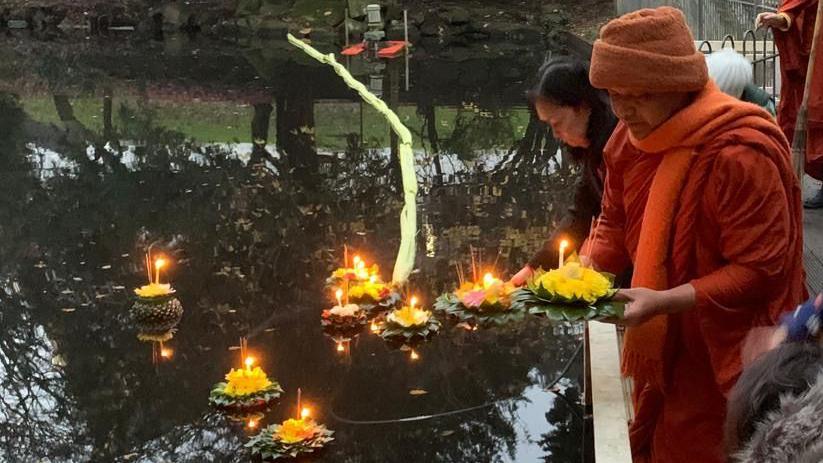
Buddhists make offerings to pray for forgiveness
As a Thai Buddhist, Venerable Phramaha Bhatsakorn Piyobhaso from south-west London celebrates Loy Krathong which is about honouring the water goddess, Phra Mae Khongkha.
During the cold winter months, Venerable says the festival is about choosing "to reflect that we are able to survive".
"It's time to celebrate, show appreciation to nature and ask for forgiveness," he says, adding this time of year is a special time to "apply the Buddhist teaching in our life".
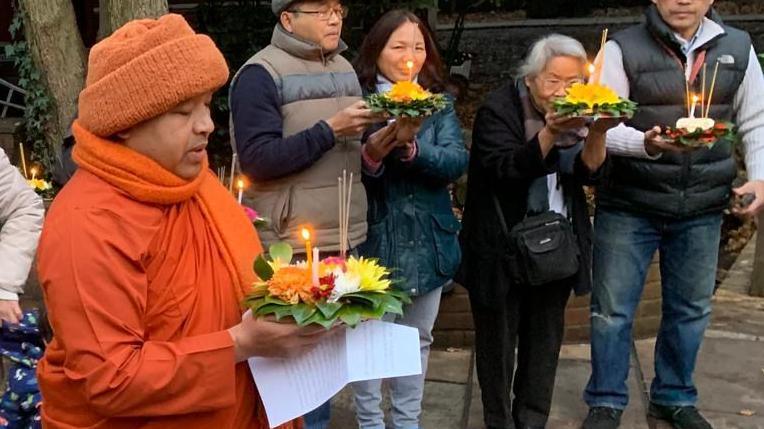
Buddhists celebrates Loy Krathong which is about honouring the water goddess, Phra Mae Khongkha
Some Buddhists celebrate by making krathongs, which are commonly made from banana leaves and made into the shape of a boat.
Offerings such as candles and incense sticks are put inside and they are placed on rivers to pay respect to the Buddha footprint and his existence on earth.
Once this is done, the afternoon is spent eating, dancing, singing and putting on cultural shows.
The celebration happens on the full moon of the twelfth month of the Thai lunar calendar, which is on 15 November.
Listen to the best of BBC Radio London on Sounds and follow BBC London on Facebook, external, X, external and Instagram, external. Send your story ideas to hello.bbclondon@bbc.co.uk, external
Related Stories
- Published27 October 2024
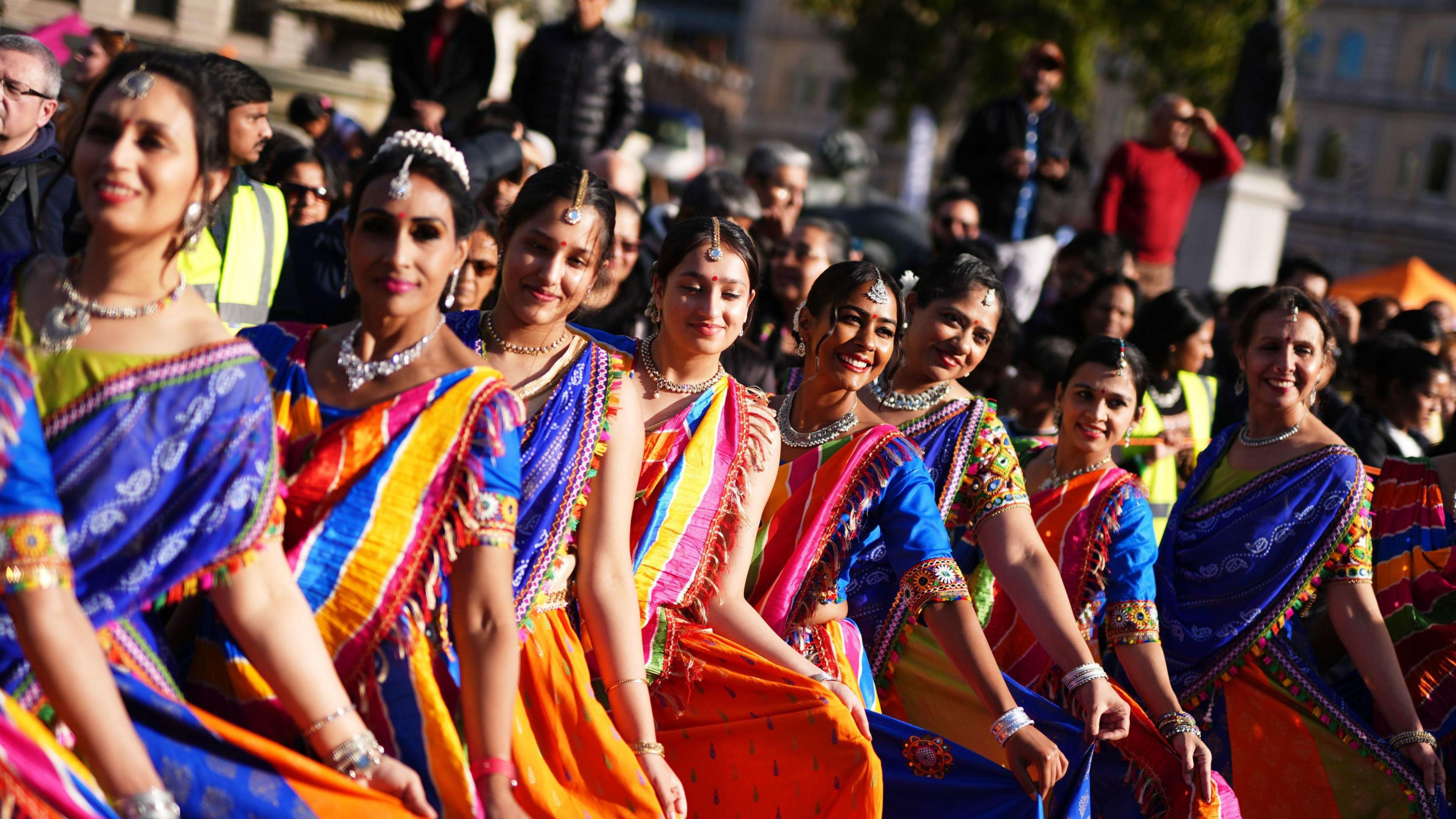
- Published12 November 2023
